Grand Prize
Team wOS
AJ Artemel, Lauren McQuistion, and Tyler Whitney

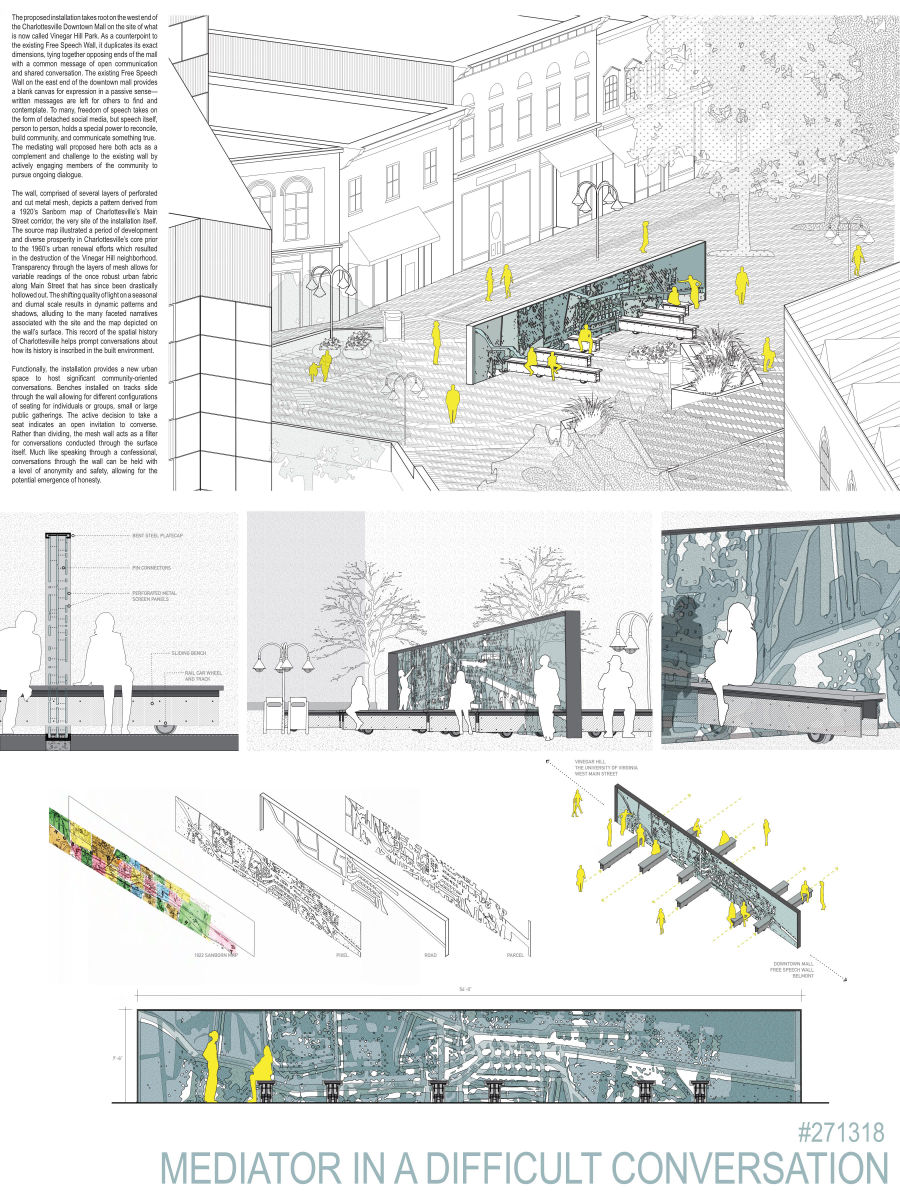
Entry #777777
Friends of Preston
WaterStreet Studio, Stony Point Design/Build, LLC
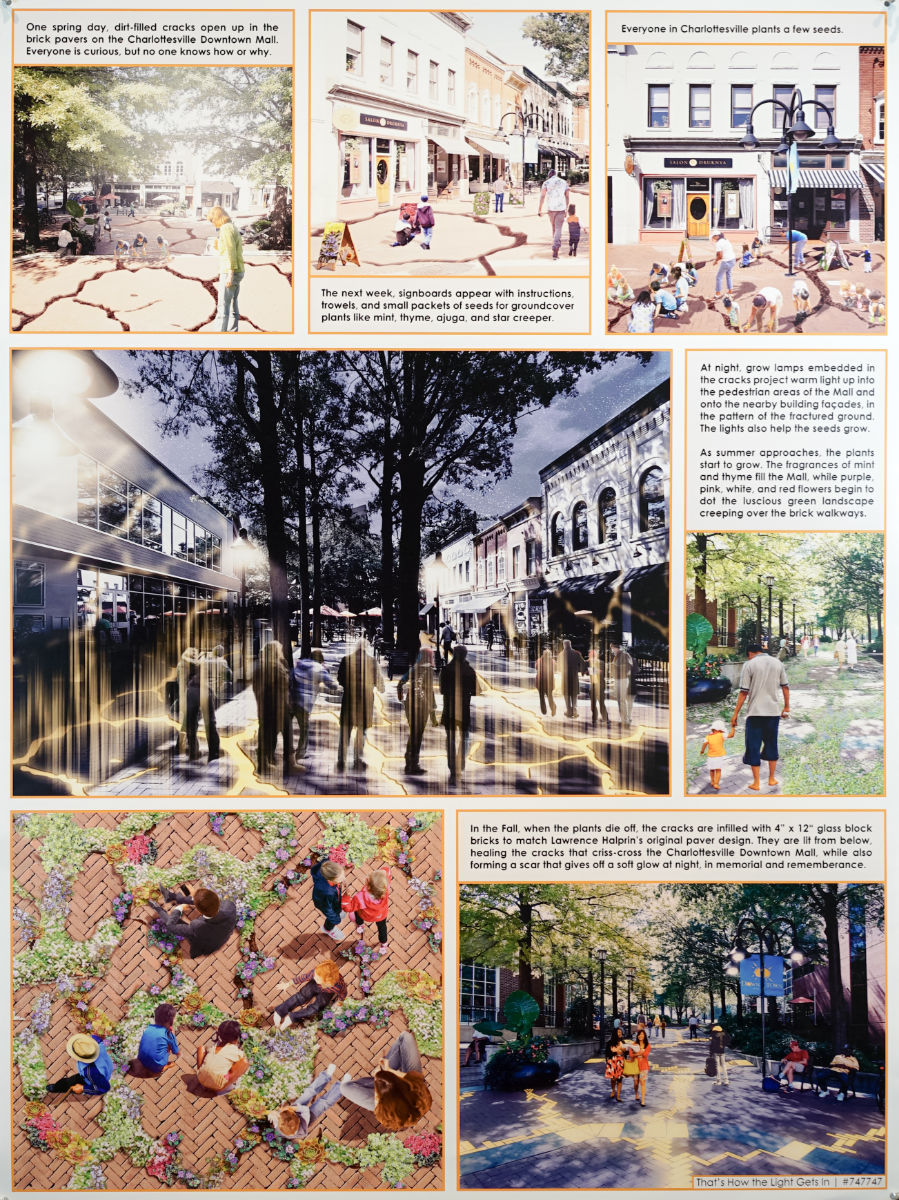
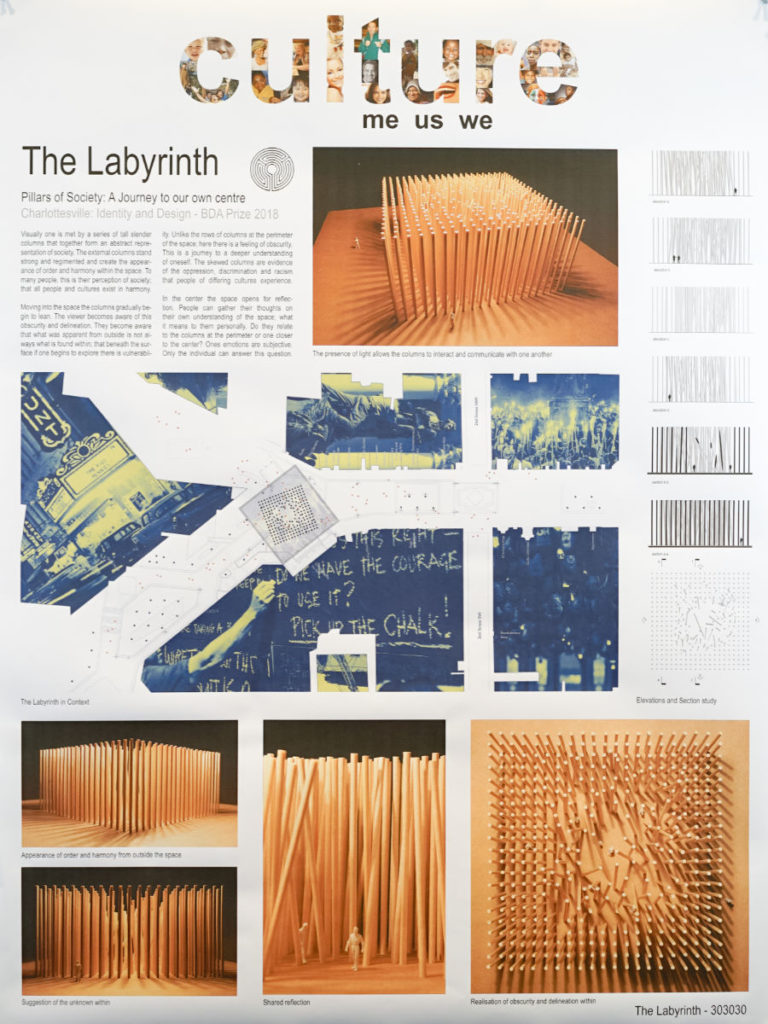
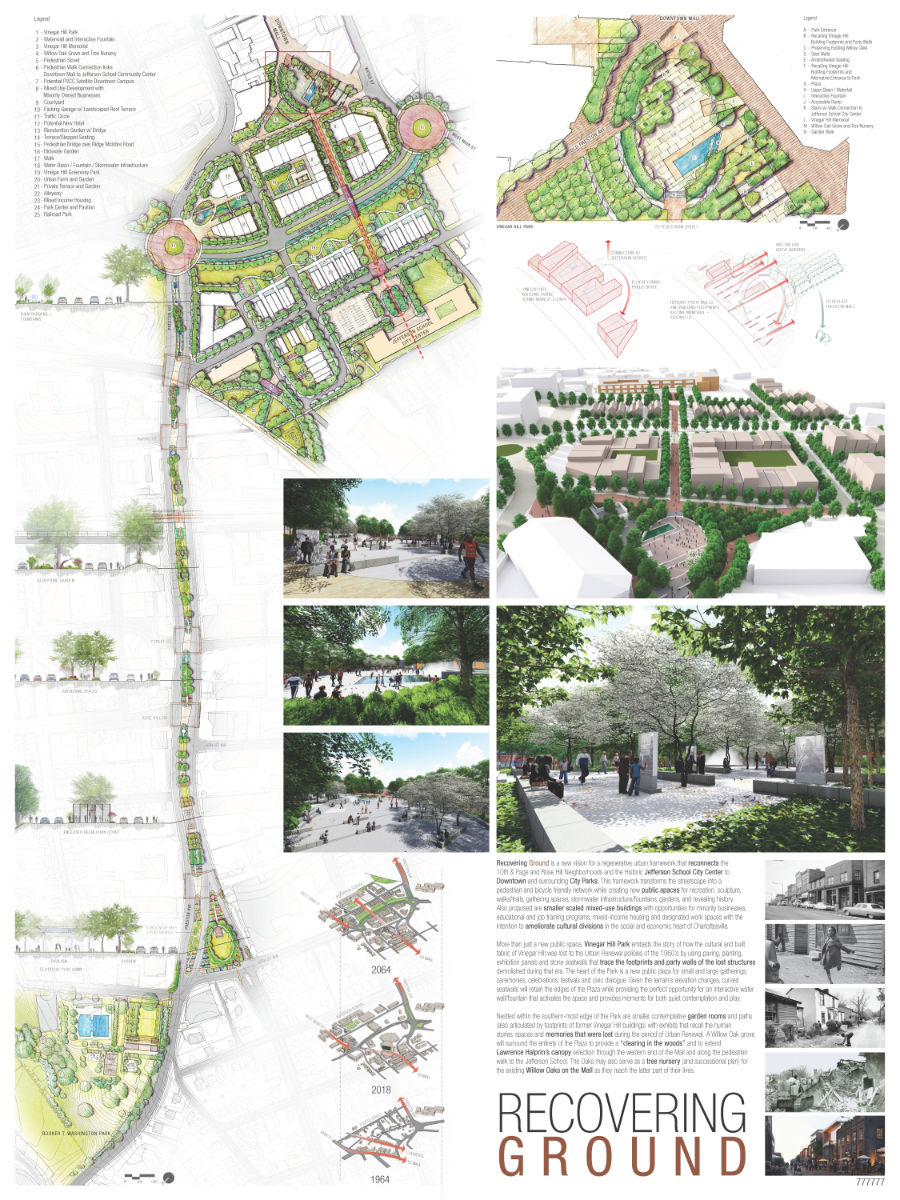
The Exhibit will be on display at the Jefferson School until May 7th.
Posters may be picked up May 9,10,11 at Bushman Dreyfus Architects between 9am-5pm
—
The 2018 BDA Prize [Charlottesville: Identity & Design] seeks proposals for a site-specific work of public art that will successfully embody the values and aspirations of a diverse community. We seek proposals from artists, architects, designers, and citizens that will offer ideas for an artistic, cultural, social, political, or ecological foundation that our community may build upon for the future.
Charlottesville Virginia is only one southern city struggling to express the reality of a complex past and understand how the stories of the past affect the present, learning to discern the difference between history and propaganda.
Foundation Values: Eight American presidents are from Virginia. Four of these were involved in the foundation documents of the nation, and seven were born owning slaves. By reputation, Enlightenment values undergirded the Founders’ activities, yet they benefitted from trade in human beings as property. And in the streets and parks of Charlottesville, a city largely unscathed by the Civil War, one surprisingly finds bronze and granite images of Confederate foot soldiers and generals, as if it was.
False History: In terms of the City Beautiful Movement and the Civil War, Charlottesville is not unique. In 2016 the Southern Poverty Law Center counted in the United States over 1,500 Confederate sculptures, memorials, place names, and other monuments displayed in public spaces in honor of the losing side of the Civil War. They further note that there is nothing even remotely comparable to this in honor of the winning side. Symbols embedded in our urban fabric can present a shockingly unbalanced narrative, and won’t necessarily speak for everyone.
The parks in which Charlottesville’s bronze-and-granite Confederate statues stand were in fact early gentrification projects.
Erasing History: Gentrification is synonymous with inequality and will proceed by means subtle or brutal. Adjacent to downtown Charlottesville was a neighborhood called Vinegar Hill, historically the center of African-American life and commerce. Under the aegis of federal urban renewal initiatives, the neighborhood was razed to the ground in 1964. Homes, businesses, and gathering places were removed, leaving 20 acres in the center of the city empty for over twenty years, the site eventually filling in with uninspired commercial and civic structures.
The question, then: Through what symbols would a diverse community express its narratives and keep them close to the truth? And how would they best be expressed? What would be the best path to correcting a narrative understood as imbalanced at best, or false at worst?
Many believe the destruction and removal of offending symbols would be the best path to a balanced narrative. But “destruction and removal” as an idea comes with uncomfortable resonances: the destruction and removal of Vinegar Hill being just one example. With this understanding, the BDA Prize encourages creation rather than destruction. This design competition is not about the question of the legacy and meaning of Charlottesville’s Vinegar Hill per se, nor is it about the question of the legacy and meaning of Confederate symbols and memorials in our midst. But those questions are important context in our town and across the county. As those questions play out, they open up another line of inquiry, which this competition is indeed about:
If public art deemed inappropriate is removed, what should fill the resulting vacuum?
What would or could a community build together?
What could express our history without imprisoning us within it?
What thing, space, experience, or artifact could a diverse community be inspired by?
What would be an appropriate expression of our place, time, and values?
What would engender constructive dialogue?
What expresses and celebrates our diversity, and even our disagreements, but finds a common thread?
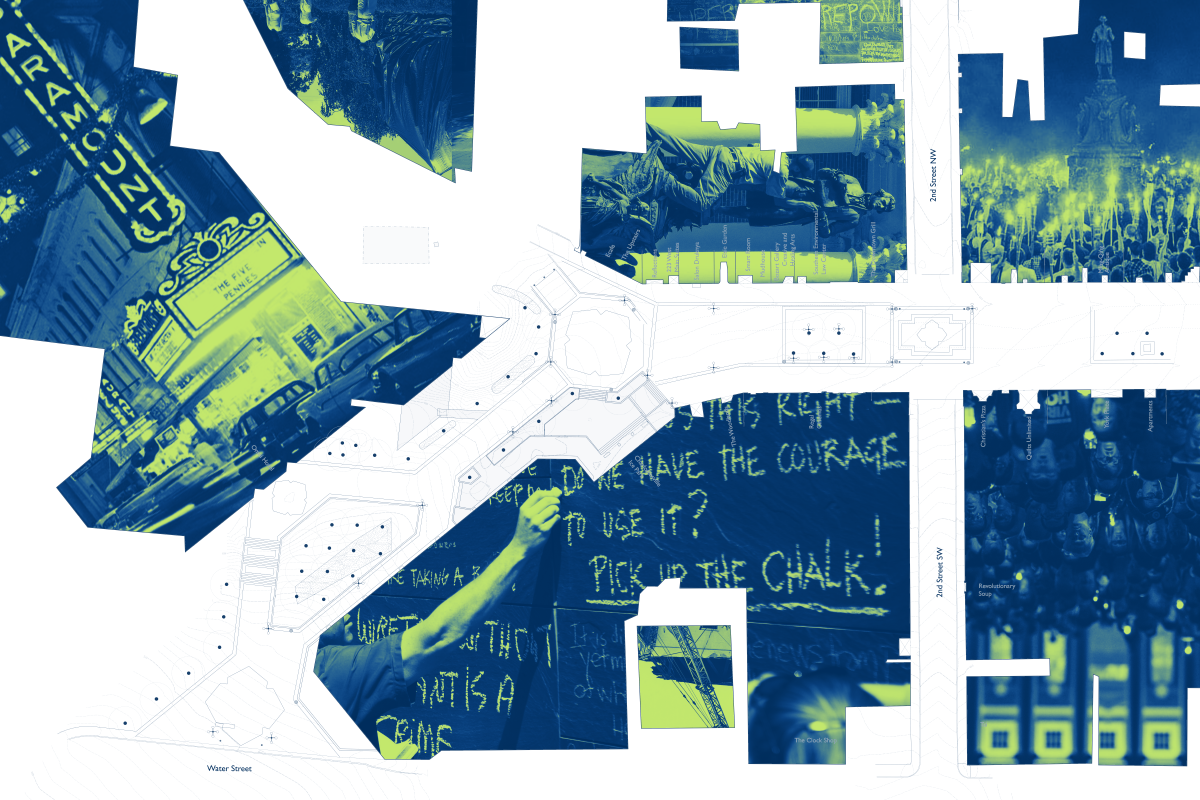
The site for this year’s competition is the west end of Charlottesville’s downtown pedestrian mall, one of the longest pedestrian malls in the United States, designed by the acclaimed landscape architect Lawrence Halprin in 1976.
Charlottesville is not a neutral city in which to have this conversation. It has proven difficult to have a thoughtful “conversation”, in the sense of considered and civil discourse, in the wake of a summer of events noted for brutality, violence, and anger.
Neither is the west end of the Charlottesville Downtown Mall a neutral site – it overlaps the boundary of the now-lost Vinegar Hill neighborhood.
The site includes one block of the Downtown Mall. The site also includes what is today euphemistically called “Vinegar Hill Park”, an idea originally proposed by Lawrence Halprin. Today’s incarnation is a disappointing echo of that original idea, a park in name only, a pedistrianized palimpsest of a street once lined with minority-owned businesses.
Proposals may encompass the entire site area or any fraction thereof.
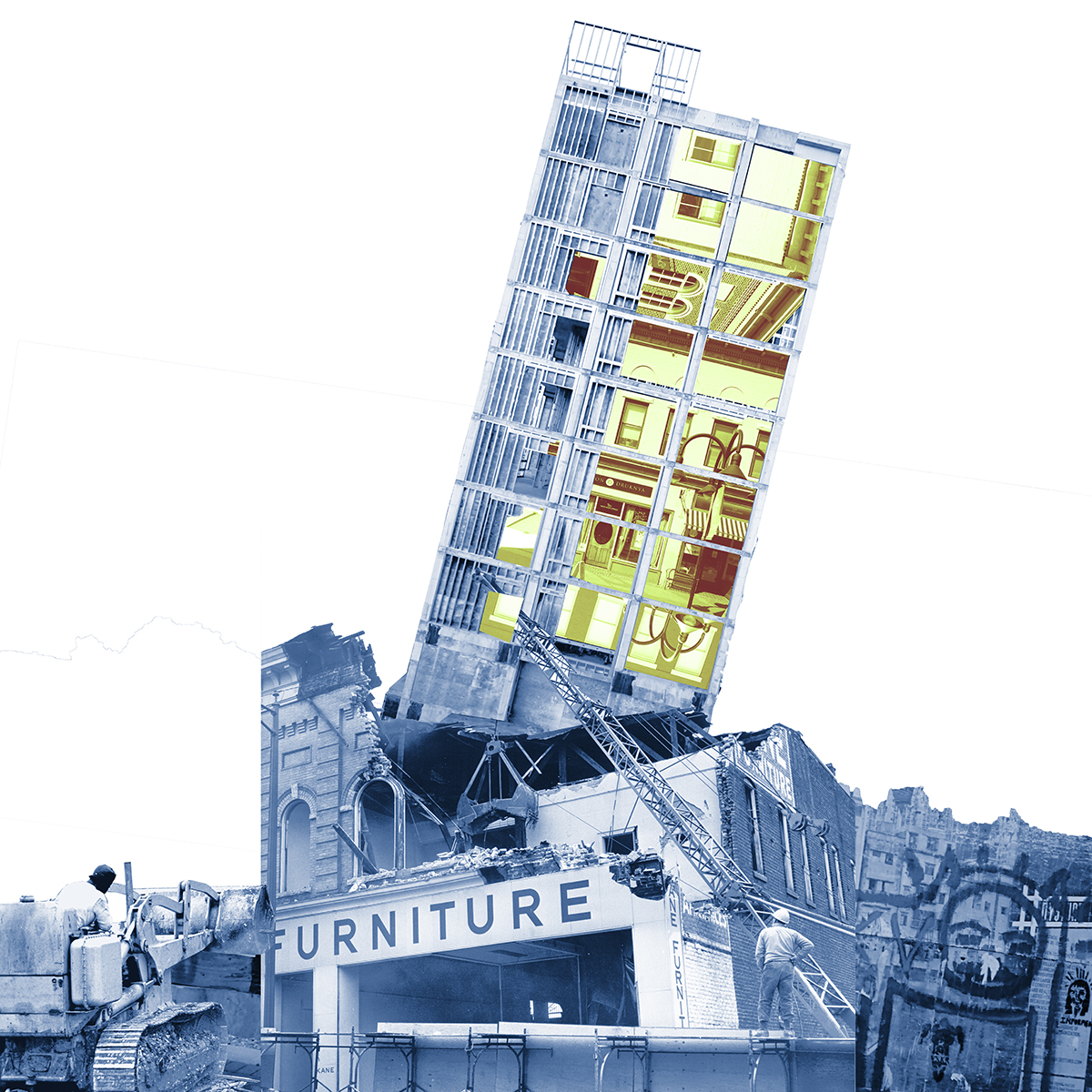
The goal of the BDA Prize and the Charlottesville: Identity & Design ideas competition is to foster community dialogue about design.
Entries are to serve as a catalyst for dialogue and discovery in our community, and will be exhibited publicly and discussed in open forums attended or led by members of the Charlottesville community, artists, designers, scholars, and our invited panel of jurors.
The BDA Prize hopes that acts of reflective making will open up the potential for a new understanding and a new expression of Charlottesville’s spirit of place and the power of public art in the 21st century.
One Grand Prize Award
US $5,000
Two Finalist Prizes
US $1,000 (x 2)
One Community Choice Award
US $1,000
Voting for the Community Choice Award will take place during the panel discussion at the Jefferson School.
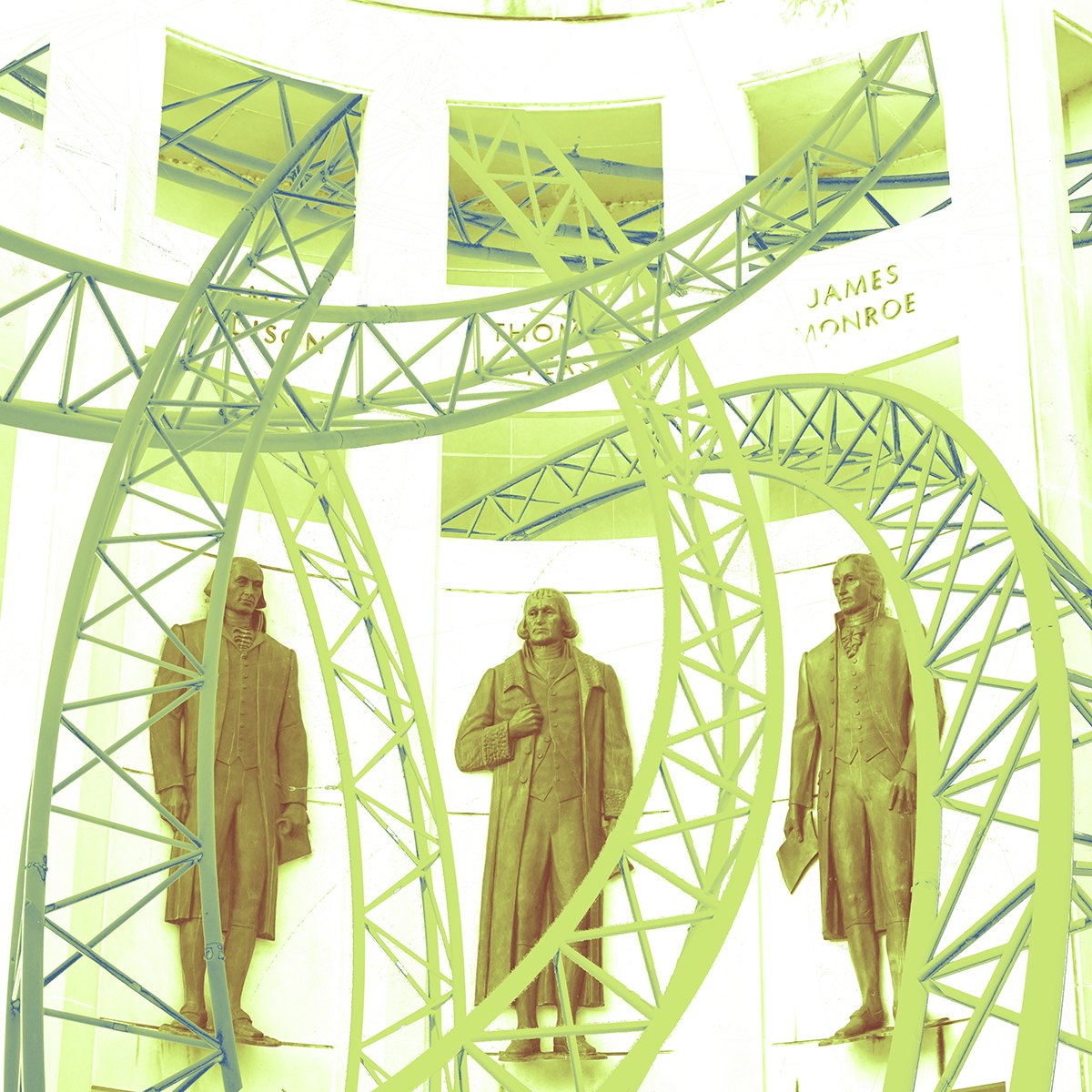

Beth Meyer is a registered landscape architect, former Dean of the UVA School of Architecture, a member of the US Commission of Fine Arts, and founder of the UVA Center for Cultural Landscapes, a trans-disciplinary initiative focused on developing a vision of cities and countrysides as complex records of social and ecological processes and encounters.
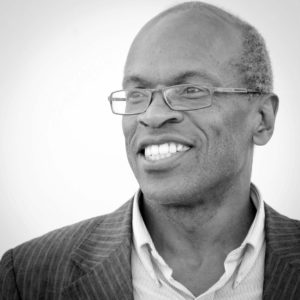
Maurice Cox is Planning Director for the City of Detroit, an urban designer, and an architectural educator and has also served as mayor of the City of Charlottesville and NEA Director of Design. He is a former Loeb Fellow and taught at Tulane University, Syracuse University, and the University of Virginia.
Maurice Cox’s biography (Cvillepedia)
Architect Magazine’s recent article on Cox’s vision for Detroit
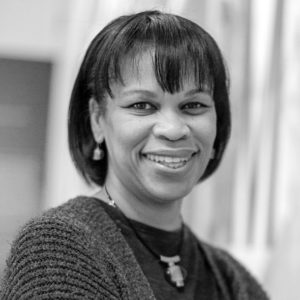
Dr. Andrea Douglas is the executive director of the Jefferson School African American Heritage Center in Charlottesville, former Curator of Contemporary Art at the University of Virginia Art Museum, and a member of the City of Charlottesville’s Blue Ribbon Commission on Race and Monuments. Her scholarship considers the cultural and social connections in the biographies of 20th and 21st century artists of the African Diaspora.
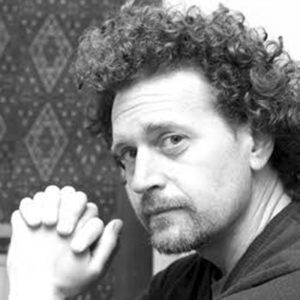
Brian Wimer is co-creator and Executive Director of the IX Art Park in Charlottesville, VA. He initiated Project Gait-Way for the Belmont Bridge Replacement. Wimer runs a film studio in Charlottesville and has written, directed and produced twelve feature films including CLAW (the Coalition of Lady Arm Wrestlers) and Charlottesville: Our Streets.

Dr. Scot A. French is a historian of cultural landscapes and sites of memory associated with African American and Southern history. He has conducted extensive research on black community life in Charlottesville and produced an award-winning film about the demolition of Vinegar Hill, That World is Gone: Race and Displacement in a Southern Town (Audience Favorite, Best Short Documentary, Virginia Film Festival, 2010). He is an Associate Professor of History, Director of Public History, and Interim Co-Director of the Center for Humanities and Digital Research at the University of Central Florida.
The moderator will oversee the panel discussion after awards are deliberated at the Jefferson School in April.

John Grisham is a bestselling author, attorney, activist, and longtime Charlottesville resident. In addition to writing critically acclaimed novels such as The Pelican Brief and A Time to Kill, Grisham is a member of the board of directors of the Innocence Project, campaigning to free and exonerate unjustly convicted people on the basis of DNA evidence.
Encouraged, allowed, or required:
Submissions should highlight the potential of public art, and the visual arts in general, and contribute to intellectual and reflective conversations in Charlottesville and beyond.
Submissions are encouraged to be visionary, bold and provocative, whether works of architecture, landscape, or sculpture.
Submissions should explore and investigate what common values our community might share and identify with, by living in this place, now.
Submissions must look forward, not back.
Proposals may be constructed of any material or any media.
Regardless of whether proposals are…
static or dynamic
place or object
inert or mechanical
architectural or botanical
temporary or permanent
activated by humans, wind, rain, or solar energy
ephemeral or solid
abstract or figural
… they must be focused on finding common ground, and strive to express the values or identity of this community. As such, they are aspirational.
Beauty is a goal. 100-year life-spans are a goal.
Not allowed:
Memorials or projects may not be about any particular person or event.
Special printing offer from T&N
The BDA Prize requires a physical poster in order to be judged. To make it easy for people outside of our local area we have partnered with our local print shop T&N to provide a printing & delivery package.
For $40 USD + Tax T&N will print your submission on 24lb matt finish bond and deliver it to us for submission. T&N can take credit cards for payment.
Eligibility
The BDA Prize is open to all. No professional qualification is required. Design proposals can be developed individually or by teams
Language
Correspondence with organizers must be conducted in English.
All information submitted by participants must be in English.
Format
The BDA Prize requires a physical artifact. Digital submissions will be not be judged. Entries must be a 30×40-inch board or poster in portrait orientation.
Title and text
A title is required. Position the title, and your registration number on the front lower-right-hand corner of your poster. Descriptive text is welcome but not required. Displaying your name or other identifying information is disallowed.
Jury
All competitors’ designs will be submitted and judged anonymously. The decisions of the jury shall be taken by a majority vote, with a separate vote on each design submitted. In the event of a tied vote, the Chairman shall have the casting vote.
Awards
BDA Prize cash awards will be distributed in compliance with United States and Commonwealth of Virginia regulations. We cannot send money to individuals residing in countries subject to the Department of the Treasury’s OFAC Consolidated Sanctions List. From US citizens, we will need a tax ID or SSN prior to distributing cash awards. Award winners will receive an IRS Form 1099 from us in January 2019.
Communications
All communication regarding the competition should only be carried out with BDA staff. For any questions please contact us at bdaprize@bdarchitects.com
Jury members shall under no circumstances be contacted by competition participants or their representatives. Participants who attempt to contact jury members, shall be disqualified.
Submission Rights
Each Contestant grants to The BDA Prize and others acting on behalf of The BDA Prize, a perpetual royalty-free non-exclusive worldwide license to use, copy for use, and display publicly all parts of the Submission. This license includes posting or linking to the Submission on the official BDA Prize website and making it available for use by the public. This license further includes using the Submission or any portion thereof for the subsequent procurement of related architectural, planning, and/or design services. Contestants retain the right to simultaneously use their Submission for all other purposes, including but not limited to, inclusion of the Submission in sample work portfolios. The author of any design shall retain the copyright of their work; no alterations may be made without their formal consent.
Publicity
Except where prohibited, participation in the BDA Prize constitutes the contestant’s consent to The BDA Prize and its agents’ use of Contestant’s name, likeness, photograph, voice, opinions, and/or hometown and state for promotional purposes in any media, worldwide, without further payment or consideration.
Original Work
Contestant warrants that he or she is the sole author and owner of the Submission, and that the Submission is wholly original with the Contestant, and that it does not infringe any copyright or any other rights of any third party of which Contestant is aware.
Return of submission
Submissions will not be returned. If desired, they may be picked up May 9-11 at Bushman Dreyfus Architects. Submissions not picked up after this time will be disposed of. The BDA Prize cannot guarantee that posters will remain unaltered or undamaged during the course of the competition, although we will endeavor to protect all entries to the best of our ability.
Amendments
The BDA Prize reserves the right to change the schedule or issue amendments to the contest rules at any time. The BDA Prize also reserves the right to cancel or reissue the contest brief.
Closing date for online registration
Midnight February 22nd, 2018
Posters must be received by
4pm EST February 23rd, 2018
International entries that come in after the deadline will be accepted so long as they are post marked before the deadline and are received before the judging.
Gallery exhibition of all entries
March 2nd – May 7th, 2018
First Fridays Opening
The Exhibition will be open April 6th, 2018 from 5pm-7pm for First Fridays.
Announcement of winners and panel discussion co-hosted by Tom Tom Founders Festival

April 10th, 2018, Doors open at 5pm
Site boundaries are indicated on the map below.
Your proposal may be as large or small are you choose so long as it fits in the indicated area.
Keep in mind this is an ideas competition, entries will not be judged on constructability or building code.
Special thanks to the UVA School of Architecture for providing Site DWG, Sketchup model and site PDF for the contest.
The Mall
History | The DTM
Field guide to the Charlottesville Pedestrian Mall
A Pedestrian Mall Born Out of Urban Renewal
Orchestrating Experience
Halprin
Halprin Community Workshop
Halprin Urban Design Plan
Examples
The Invisible Monument to Free Speech
The Memorial to Peace and Justice | Equal Justice Initiative
Freedom of speech wall
Vinegar Hill
History of Vinegar Hill (Wiki)
History of Vinegar Hill (UVA)
Vinegar Hill: A Forgotten Neighborhood
In 1965, the city of Charlottesville demolished a thriving black neighborhood
That World is Gone — Field Studio
The Illusion of Progress
Confederate memorials
Jeffrey Robinson on Race, History, and Memorials
The battle over Confederate statues, explained
Whose Heritage? Public Symbols of the Confederacy
Public Art
Maya Lin: Architecture, Memorials, and Art
What is Public Art?
Why Public Art is Important
The Many Benefits of Public Art
Public Art: Definition, History, and Types
The BDA Prize is sponsored by Bushman Dreyfus Architects in Charlottesville, Virginia, and is an annual event.
The BDA Prize exists to generate forward-looking ideas to better our community through design and dialog. Each year the competition will explore a current area of interest for the Charlottesville community, focusing on issues and opportunities in architecture, landscape architecture, urban design and planning, public art, education, and community engagement.